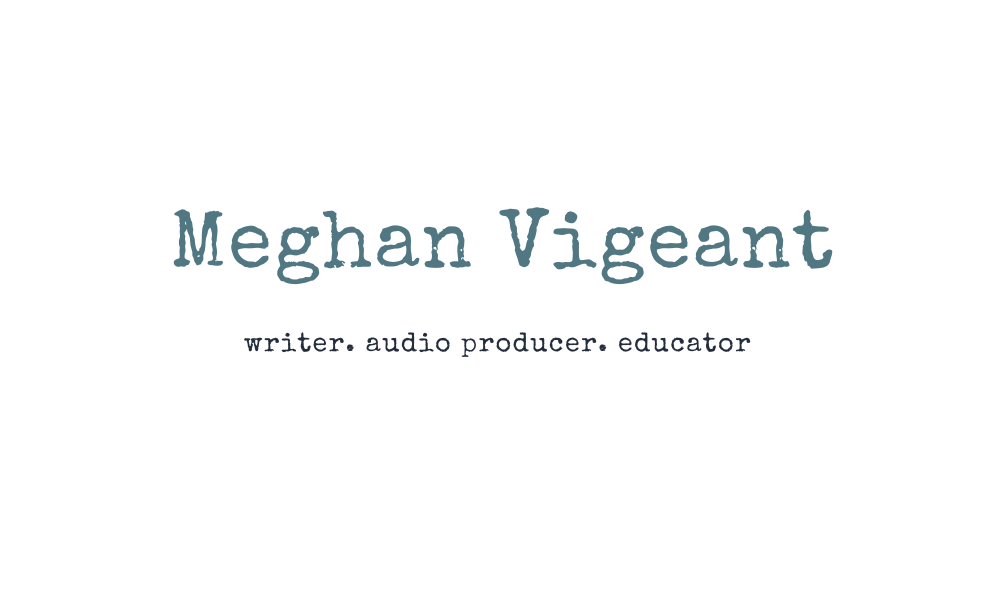“Are you saying you want us to change history?” a man in my oral history workshop asked. (I’m paraphrasing, but this was the gist of what I remember he said.)
Meghan (right) shows the class how to check their audio levels with Eloise Schultz (left) as the test interviewee. Photo by Tim Garrity.
I had shared my interview tips and recording tricks with the class, and then I started talking about turning those long long interviews into something more interesting and accessible. I was encouraging my students to take their recordings a step beyond oral history and craft something interesting with it. To edit. Yes, to change history.
The man in my class compared this idea to changing a historic photo in Photoshop - the way you might remove minor blemishes or dust marks to make the image more visible, and yet you are altering it.
I balked! Photoshop! Airbrushed images of women made to look thinner and "more beautiful" came to my mind. The comparison makes editing sound almost dirty and deceptive. And yet...it is an excellent question. I do think we owe our audience something digestible. Too many history teachers have failed on this front by making history boring. I don’t want to make that mistake.
Most oral history interviews are one to two hours long. If I’m doing my job well and asking good questions I can record some great stories. However, there is also a lot of other stuff that is, to be honest, kind of boring. There are long pauses while interviewees think and ponder; they stumble over their answers; they try to work out just what year was it that they joined the Navy or quit that job. It is not realistic to ask the public or even a family who loves the storyteller very much to listen to such a long and, sometimes tedious, rambling string of stories.
This is why I encourage oral historians to become editors too, or make friends with editors. I don’t want them to change the facts or misrepresent it. I still want them to make those full and uncut, long and rambling oral history interviews completely accessible to the public so that the rare souls who want the full thing can hear it. And then I want them to create something more from those recordings, something that inquiring and curious listeners can soak up and glean insights into the past.
Is editing an oral history recording changing history? Is it like editing a photo in Photoshop? I’d like to offer another analogy.
What if this is more like writing a history book?
The author of a history book has not handed readers a pile of hand-scribbled letters from the 1800s, stacks of journals and other primary source materials. No, they have pulled out the shining gems, given context, and hopefully brought history to life. The author has made choices and decisions: what goes in, what gets left out. It is the historian’s job to present that story as accurately and truthfully as possible, and, dare I say, make it interesting too.
History is edited, my friend.

